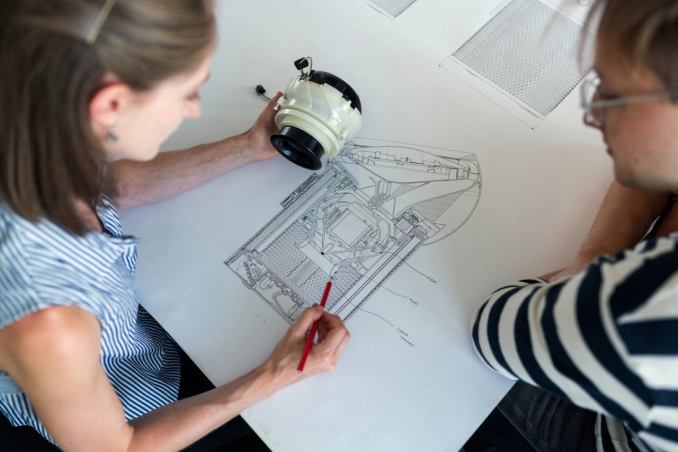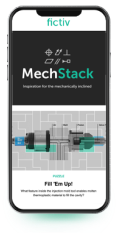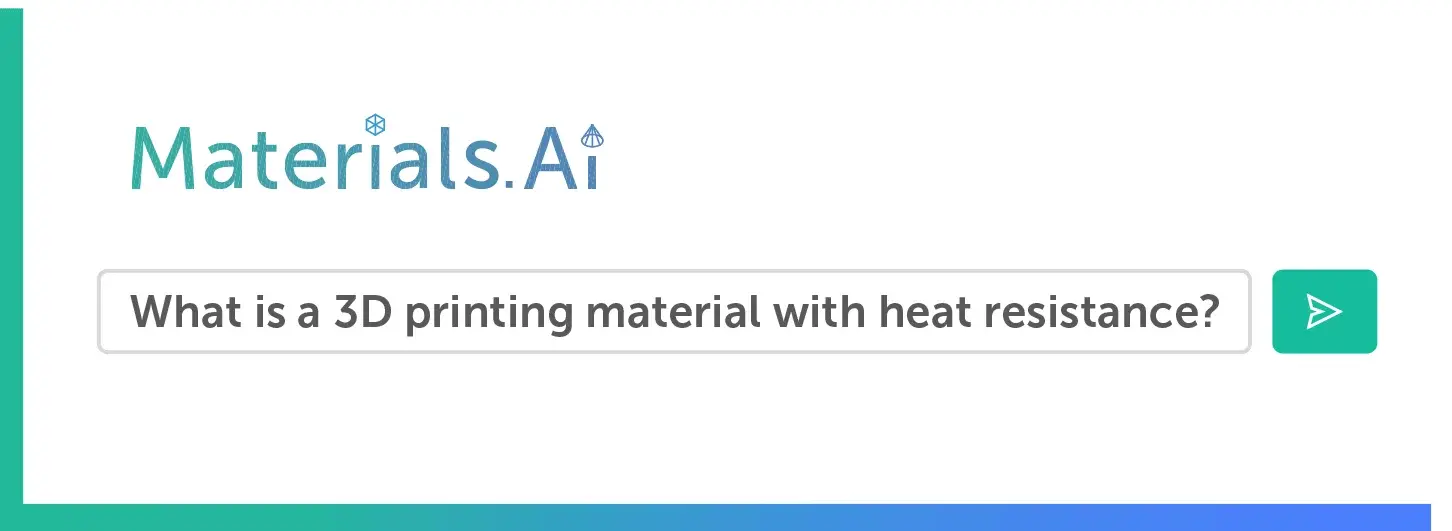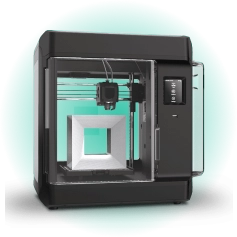Time to read: 6 min
Aerospace injection molding produces plastic prototypes and production-quality parts for aerospace applications. These custom components include brackets and mounts, ducts and vents, covers and panels, and guides and sleeves. From aircraft interiors to airframes; from cabins to engines; and from turbine blades to landing gear, aerospace plastic injection molding can turn your designs into reality – if you know where to look.

Injection molded aerospace parts can be found around aircraft, satellites, and spacecraft.
How to Find an Aerospace Injection Molder
Fictiv works with a carefully vetted network of injection molding partners who can meet the specific needs of aerospace customers. Importantly, we also provide design for manufacturing (DFM) assistance so you can optimize part designs for cost and performance. For faster cycle times, tighter tolerances, and AS9100 quality, companies like Honeywell Aerospace choose Fictiv.
“Fictiv does an incredible job connecting my needs as a customer to those suppliers that have the capability, the right competitive cost, and the capacity to build my product and get it to me in a very rapid cycle time.” – Jon Hobgood, Vice President at Honeywell
Keep reading to learn more and request a quote for plastic aerospace prototypes and injection molded parts.
Why Aerospace Injection Molding is Different
All types of injection molding processes have commonalities. Whether for prototyping or production, the process begins when molten material is injected into the cavity of a mold. The part material, typically a thermoplastic, then solidifies into the shape of the mold before it’s ejected. Sometimes, secondary processes such as machining, painting, welding, assembly, and packaging are needed.
It’s important to remember that not all injection molders can produce plastic parts with the quality that aerospace customers need. When it comes to aerospace injection molding services, there are four things to look for in a potential partner.
- High precision
- Advanced materials
- AS9100 quality
- AS9102 first article inspections
The following sections explain.
High Precision Aerospace Parts
Injection molded aerospace parts require a high degree of precision to ensure safety and performance. Accuracy refers to how close a measurement is to an accepted value, but precision refers to how close measurements of the same part are to each other. Even minor variations can represent manufacturing defects requiring designers to specify tight injection molding tolerances. In turn, injection molders need to use precision tooling and maintain tight controls over quality systems to ensure conformance.
Aerospace Tolerances
Most injection molds are machined to tolerances of ±0.127 mm, but aerospace parts may need tools machined to ±0.0508 mm or even ±0.0254 mm. However, parts with tight tolerances require steel molds, and steel injection molds cost more than aluminum. Usually, steel also takes longer to machine, so there’s a risk that projects with tight timetables could face delays. If a design change becomes necessary, there are additional costs and longer tool making time to consider.
Aerospace Injection Molds
When you partner with Fictiv, you’ll receive DFM assistance that can help you avoid these and other risks. Plus, you can get T1 samples in just two weeks – even using aerospace plastic injection molds that are made of steel. For prototype injection molding, tools made of soft and semi-hardened steels take less time to machine and provide the fine tolerances you need. For production runs, hardened steel molds can produce high-precision aerospace parts in higher volumes across many cycles.

Aerospace molds are made of soft steel, hardened steel, and semi-hardened steel.
Advanced Materials for Aerospace Injection Molding
Aerospace plastic injection molding services use advanced materials that meet strict standards for strength, durability, and resistance to extreme conditions such as high temperatures, pressures, and chemical exposure. Typically, high-performance thermoplastics, composites, and engineered resins are used. Sometimes, an aerospace designer can use less expensive materials during prototyping and more expensive options during production.
The table below describes advanced materials for aerospace injection molding.
| Polyetheretherketone (PEEK) | PEEK is known for its high mechanical strength, chemical resistance, and ability to withstand high temperatures. It’s used in aerospace seals and bearings. |
| Polyimide (PI) | PI is extremely heat-resistant and stable. Aircraft applications include wire insulation, gaskets, and bushings. |
| Polytetrafluoroethylene (PTFE) | PTFE offers excellent chemical resistance and low friction. It’s used in applications such as aerospace gaskets and hoses. Teflon® is a well-known PTFE trade name. |
| Polyphenylene Sulfide (PPS) | PPS offers high thermal stability and chemical resistance. It’s used in aircraft electrical components and structural parts. |
| Polyamide-imide (PAI) | PAI is known for its exceptional mechanical properties and high resistance to wear and heat. Aerospace applications include bearings, bushings, and electrical connectors. |
| Polycarbonate (PC) | PC provides high impact resistance and clarity. This makes it ideal for aircraft windows, light covers, and lenses. |
| Polyetherimide (PEI) | PEI is used in aircraft interiors and electrical housings because of its high strength and thermal stability. |
| Acrylonitrile Butadiene Styrene (ABS) | ABS is known for its toughness and impact resistance. It’s used in interior parts and avionics housing. |
Some aerospace plastics are also used in other applications. For example, glass-filled nylon provides strength and stiffness in aircraft parts, but it’s also used in automobile engine covers. PEEK comes in aerospace grades, but there are also grades for medical applications. Fictiv can help you choose the right resin for your project and works with manufacturing partners who can handle hard-to-process materials.

AS9100 certification demonstrates an injection molder’s commitment to quality.
AS9100 Certified Injection Molding
AS9100 certification is a well-known quality management standard for the aerospace industry. It’s also used by defense industries. Not all injection molders are AS9100 certified, so it’s important to determine whether a potential partner can meet your standards for quality. AS9100 certification isn’t required for all aerospace parts production, but Fictiv’s global network of manufacturer partners includes AS9100 certified injection molders with deep industry experience.
AS9100 Quality
There are many advantages to choosing AS9100 certified injection molding:
- Quality Management System (QMS): Injection molders who establish, implement, and maintain an AS9100 QMS perform regular quality audits and are committed to continuous improvement.
- Documentation and Traceability: AS9100 certification requires an aerospace injection molding service to collect and maintain detailed records of its processes. This includes material certifications, production controls, and inspection results.
- Process Control: Molders that maintain strict process control can ensure consistency, precision, and adherence to design specifications. During the aerospace injection molding process, this includes monitoring equipment parameters such as temperature, pressure, and cycle times.
- Risk Management: Aerospace injection molders with risk management processes are better able to identify, assess, and mitigate the risks associated with producing aerospace components. Examples include problems with tolerance stack-ups in assemblies.
- Supplier Management: AS9100 certified injection molders ensure their suppliers and subcontractors (such as toolmakers) also meet stringent quality requirements. In addition to performing regular evaluations, these molders audit supplier performance.
AS9102 First Article Inspection
AS9102 First Article Inspection (FAI) is part of the AS9100 standard and verifies that a manufacturing process, tool, and material can produce aerospace parts that meet all engineering specifications and requirements. Specifically, AS9102 ensures that the first piece is produced correctly and that a manufacturer can consistently produce conforming parts. In other words, it’s essential for high-precision parts with limited part-to-part variability.
AS9102 Forms for Aerospace Injection Molding
AS9102 encompasses documentation requirements for capturing data during the FAI process. This data includes dimensional measurements, material certifications, process validations, and functional tests. There are also three numbered forms for aerospace injection molders to complete.
- Form 1: Part Number Accountability – Contains information about the part being inspected, such as part number and revision level.
- Form 2: Product Accountability – Documents the materials, special processes, and functional tests that are required for the part.
- Form 3: Characteristic Accountability – Captures detailed measurements and inspection results for part characteristics such as dimensions, tolerances, and notes from the engineering drawing.
FAI Inspections
FAI inspection involves a detailed examination and measurement of the first production part. Along with verifying that all design features and engineering specifications are met, an aerospace injection molder must verify each measurement and inspection result. Before full parts production begins, it’s essential to address and resolve any deviations. Sometimes, non-destructive testing (NDT) is used.
Traceability
In aviation, traceability is increasingly important because of how some recently manufactured jets contained components made from titanium that were sold using fake documentation. The FAI process is designed to ensure complete traceability of materials, processes, and inspection results for aerospace components. In turn, this helps identify the root causes of any problems so that suppliers can implement corrective actions.
Approvals, Revisions, and Changes
After the AS9102 FAI is complete, the data is reviewed. An approval signifies that the injection molded part meets all requirements and that the production process has been validated. Although FAIs are associated with new parts, they’re also used when there are significant changes to part design, materials, tooling, or manufacturing process.
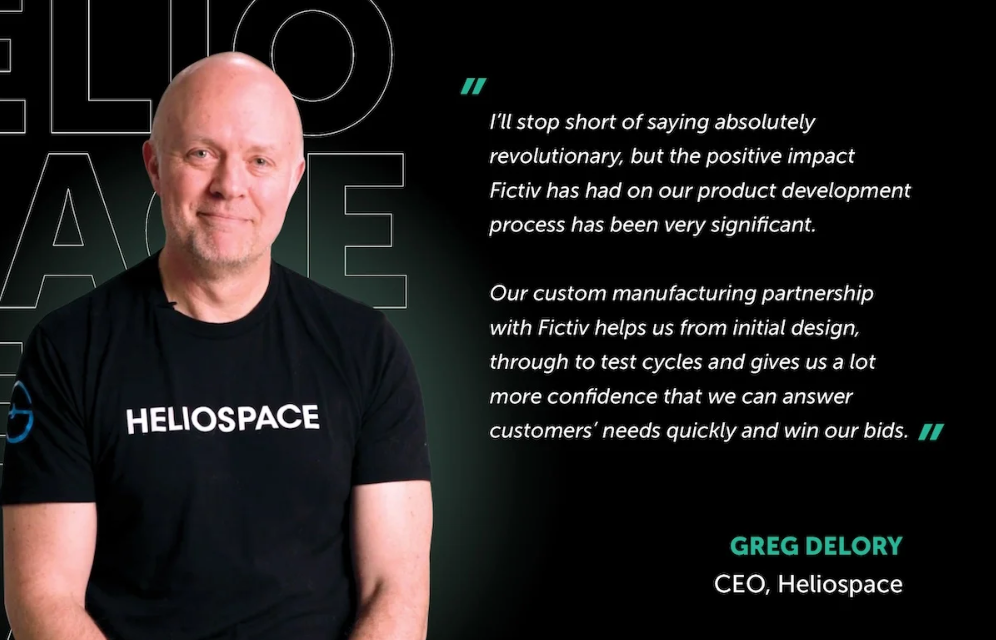
From Aerospace Prototypes to Aerospace Parts
Choose Fictiv for aerospace injection molding that meets your requirements for high precision, advanced materials, AS9100 quality, and AS9102 FAIs. In addition to large corporations like Honeywell, we work with smaller aerospace companies like Heliospace that are pioneering cutting-edge technologies and need exceptional quality and fast production. Are you ready to get started? Create your free Fictiv account and upload your design to see what our instant quote process, DFM expertise, and intelligent on-line platform can do for you.
